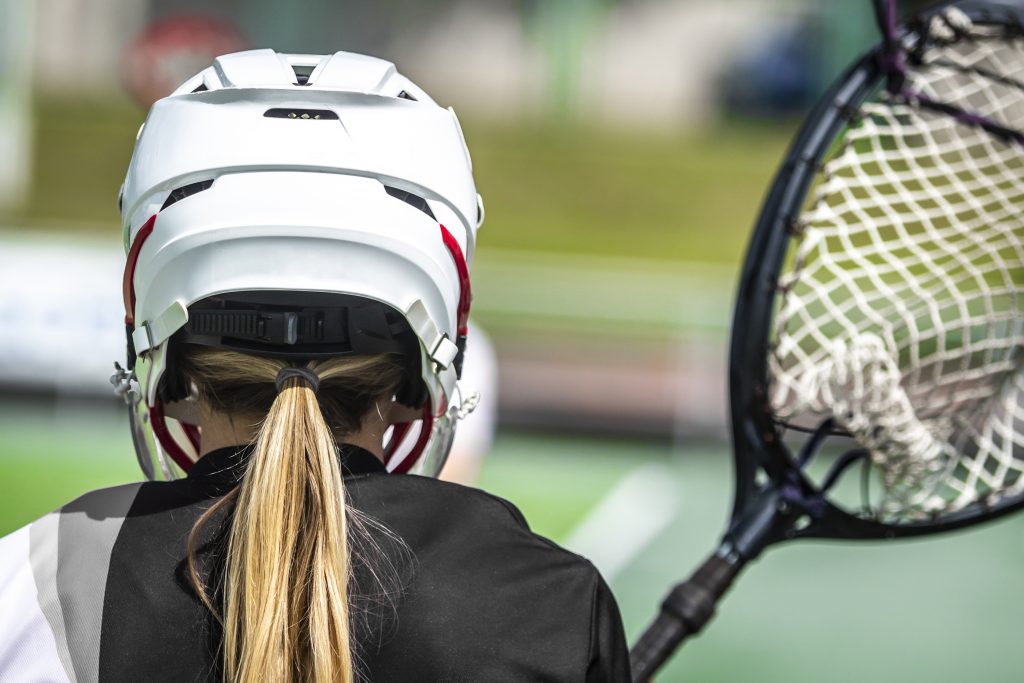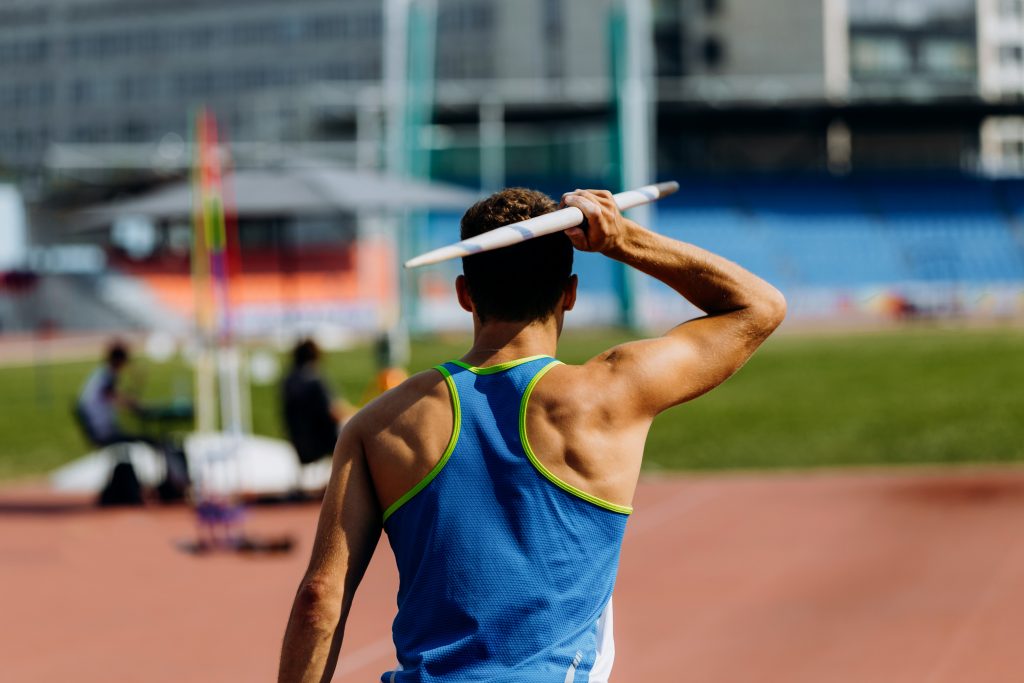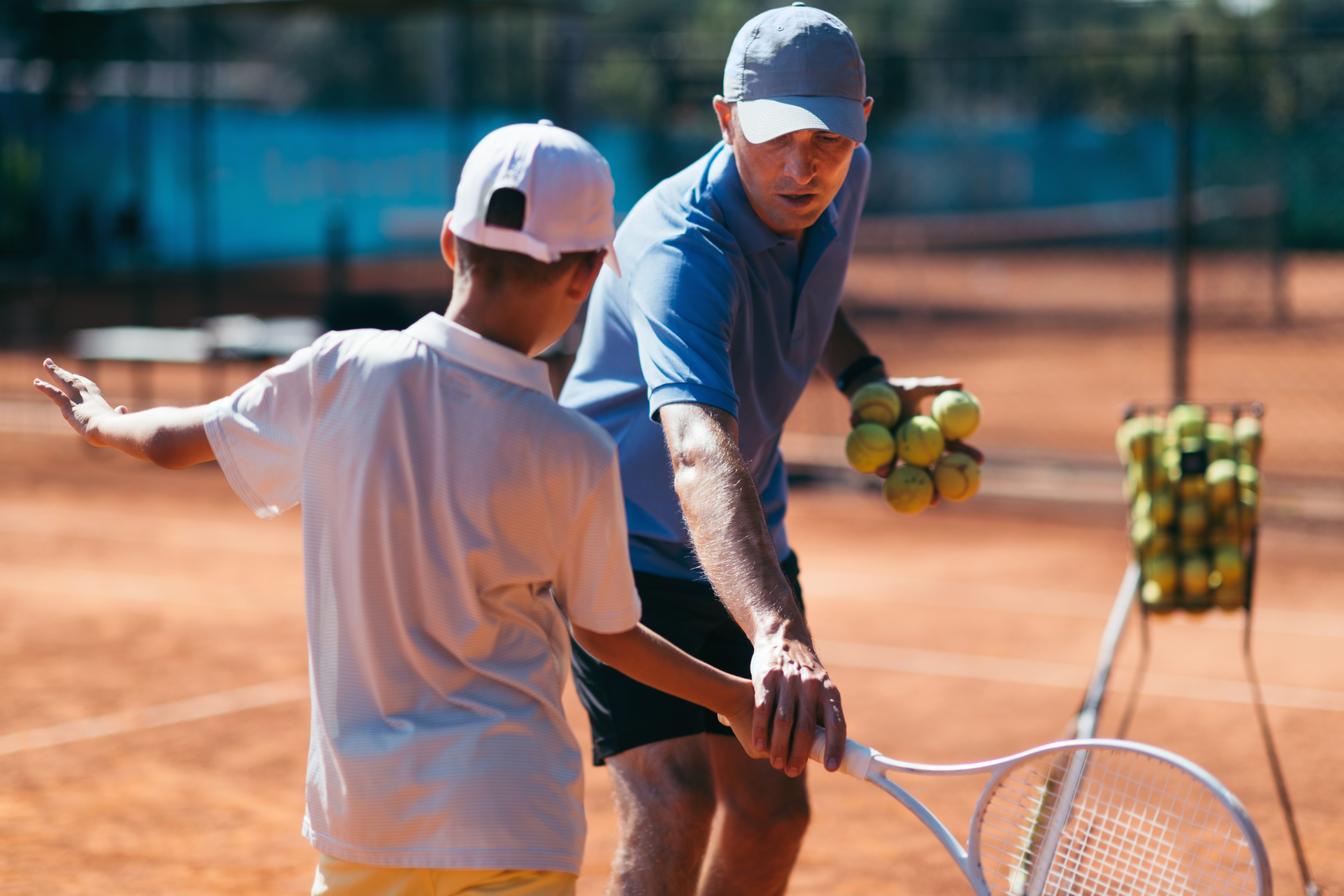Coach Development
Coaching in Canada enables sport participation and development for all and contributes to the positive sport experiences of athletes. Discover valuable tools and insights to enhance coaching techniques and effectively guide athletes to success.
Search Coach Development Resources
Top 10 resources
- National Coaching Certification Program
- Understanding the Rule of Two Training Module
- SIRCuit Article: The state of coaching sport: Landmark report reveals new insights and data
- SIRCuit Article: The evolving role of coaches in athlete mental health
- SIRC Article: Ted Lasso: Coaching with Heart
- SIRC Article: Coaching Strategies to Maximize Long-Term Learning and Performance for Athletes
- SIRC Article: Coaching your own child – 5 tips for the parent-coach
- SIRC Article: Addressing gender inequities in Canadian university coaching
- SCRI: Towards the development of a coach mentorship training program in para sport
- National Coaches Week

Featured resource
Leanne Elliott & Nick Wattie

Featured resource
Jamie Bissett, University of Toronto
Quick Facts
How can a coach become certified in Canada?
In Canada, coaches can become certified through the National Coaching Certification Program (NCCP), a nationally recognized program that provides comprehensive training for coaches at all levels. NCCP training is managed and delivered by the Coaching Association of Canada in partnership with 65 National Sport Organizations and Provincial/Territorial Sport Organizations. The NCCP offers sport-specific certification pathways and training streams designed to meet the needs of coaches working with athletes of various ages, skill levels, and competitive contexts.
Coaches can enroll in workshops and courses that cover essential topics such as sport safety, athlete development, mental health awareness, and inclusive coaching practices. These educational opportunities are tailored to the needs of both novice and experienced coaches, equipping them with the tools and knowledge required to effectively mentor and support their athletes. Continuous professional development is encouraged, ensuring that coaches stay current with the latest best practices and trends in the sports industry.
What is Safe Sport Training, and how can I access it?
As of April 1, 2020, all Sport Canada-funded organizations must provide Safe Sport Training for individuals under their authority, including decisionmakers such as board members, those with direct athlete contact like coaches, and those with no direct athlete contact like committee members. This training aims to ensure a safe and respectful sport environment. The Coaching Association of Canada (CAC) offers a 90-minute Safe Sport Training program at no cost, available in both English and French, and compliant with accessibility standards. To access the training, log in to your Locker account and select Safe Sport Training. If you don’t have a Locker account, create one by visiting The Locker through the CAC website.
What are some effective strategies for coaches to foster inclusivity and diversity in their teams?
Coaches can foster inclusivity and diversity by implementing strategies such as:
- Promoting a culture of respect and openness within the team: This includes actively encouraging participation from athletes of all backgrounds and ensuring that all team members feel valued and included.
- Education and training: Coaches should educate themselves and their athletes about cultural competence and the benefits of diverse perspectives.
- Accommodating needs: Creating policies and practices that accommodate different needs and providing equal opportunities for all athletes are essential steps.
- Community Engagement and Outreach: Engaging in community outreach and collaborating with organizations focused on inclusivity can further enhance efforts to build a diverse and welcoming team environment.
Coaches can learn more about promoting equity, diversity, and inclusion and explore additional tools and training modules through the resources provided by the Coaching Association of Canada.
What is the role of a coach in athlete development?
Coaches play a pivotal role in the holistic development of athletes, guiding their physical, mental, and emotional growth. Beyond teaching technical skills and strategies, coaches help athletes develop crucial life skills such as discipline, teamwork, and resilience. They also create an environment that fosters a positive attitude, self-confidence, and a love for the sport. Coaches support athletes through victories and setbacks, helping them navigate challenges both on and off the field, ultimately shaping well-rounded individuals who can excel in all aspects of life.
Why is it important for coaches to understand Long-Term Athlete Development (LTAD)?
Understanding Long-Term Athlete Development (LTAD) is crucial for coaches as it provides a framework for nurturing athletes’ growth at each stage of their development. LTAD emphasizes a tailored approach to training that aligns with the athlete’s physical, cognitive, and emotional maturity, helping to ensure that training is age-appropriate and promotes sustainable progress. By adhering to LTAD principles, coaches can better prevent burnout and reduce the risk of injury by avoiding overtraining and fostering a positive experience in sport. LTAD also supports the idea of developing fundamental movement skills in younger athletes, which serve as the foundation for more specialized skills as they grow.
Video Resources
Promoting and Assessing Social Learning in Para sport Coaches and Organizations
- University of Ottawa and SIRC
- 2020
I’m a Coach – Now What? – Understanding your Legal Obligations
- Sport Law and SIRC
- 2015
Sport North Coaching Mini-Series – Part 2: Being a Good Sport Parent
- Sport North, University of Toronto, and SIRC
- 2021
SIRCTalks/Exposés : Evaluation of the Coaching for Life Skills Program
- University of Ottawa and SIRC
- 2020
Driving Change Spotlight: Fabrice Vil
- Pour 3 Points and SIRC
- 2020
Reimagining High School Sport Coaching through a Social Justice Lens
- Brock University
- 2024
Knowledge Nuggets
knowledge nuggets
Movement consistency grows with sport experience
A review of 59 studies found experienced athletes move with less variability than beginners. These patterns were seen across many sports, tasks and skill levels.
A review of 59 studies found experienced athletes move with less variability than beginners. These patterns were seen across many sports, tasks and skill levels. For coaches, this highlights the value of focusing on quality, repeatable movement patterns during training to support skill development.
knowledge nuggets
Helping students build emotional awareness can start in the gym
Through the Captains & Poets program, educators use movement-based activities to teach self-leadership and social-emotional learning (SEL). By identifying their inner “Captain” (action) and “Poet”
Through the Captains & Poets program, educators use movement-based activities to teach self-leadership and social-emotional learning (SEL). By identifying their inner “Captain” (action) and “Poet” (reflection), students learn to manage emotions, build confidence, and coach themselves—skills that support mental well-being and success both in and out of sport.
knowledge nuggets
The impact of body image on youth athletes’ performance
Research conducted with nearly 1,400 youth athletes found that when they focus on how their bodies appear, known as “body surveillance,” their performance suffers. This
Research conducted with nearly 1,400 youth athletes found that when they focus on how their bodies appear, known as “body surveillance,” their performance suffers. This can mean slower reaction times and less precise movements when competing. The research urges coaches and sport leaders to reduce appearance-based pressures and shift focus toward athletes’ confidence and functional abilities.
knowledge nuggets
Factors influencing the decision to coach
Many factors can influence whether someone chooses to become a coach, but one surprising factor may be their birth date. New research found that, after
Many factors can influence whether someone chooses to become a coach, but one surprising factor may be their birth date. New research found that, after 1980, individuals born earlier in the year were more likely to coach minor hockey than those born later. Building confidence and skills in those born later in the year may help support their future involvement in coaching.
knowledge nuggets
Youth athletes turn to coaches and parents for food guidance
Adolescent athletes most often cited parents and coaches as their main sources of food literacy, while non athletes were more likely to rely on peers
Adolescent athletes most often cited parents and coaches as their main sources of food literacy, while non athletes were more likely to rely on peers and social media. Since not all adults in guidance roles offer evidence-based advice, equipping coaches and parents with accurate, sport-specific nutrition resources is key to supporting young athletes’ health and performance.
knowledge nuggets
Mentorship program for parasport coaches
Mentorship can be a powerful way to support parasport coaches. A recent study found that a virtual mentorship program helped coaches feel more confident, use
Mentorship can be a powerful way to support parasport coaches. A recent study found that a virtual mentorship program helped coaches feel more confident, use inclusive terminology, and learn more about coaching athletes with disabilities. The study recommends continuing mentorship programs to help coaches progress, connect, and grow in their roles.
knowledge nuggets
Prioritizing masters sport in coach education
A recent study explored coach education directors’ perspectives on supporting lifelong sport participation through adult-oriented coaching development. Findings revealed a dominant focus on youth and
A recent study explored coach education directors’ perspectives on supporting lifelong sport participation through adult-oriented coaching development. Findings revealed a dominant focus on youth and high performance coaching, despite recognizing the unique needs of adult athletes. Based on the results of this study, there is a need to integrate Masters sport coaching into coach education programs to promote lifelong sport pathways.
knowledge nuggets
Making the case for more women coaches in disability sport
Women bring vital skills to coaching but are often underrepresented in disability sport. Attracting qualified women coaches in disability sport enhances inclusivity and athlete success.
Women bring vital skills to coaching but are often underrepresented in disability sport. Attracting qualified women coaches in disability sport enhances inclusivity and athlete success. Flexible coach training opportunities, mentorship programs, and communities of practice for women are all ways to increase the number of women in coaching roles.
More Coach Development resources
|
|
|
|
|
|
|
|
|
|
|
|
|
|
